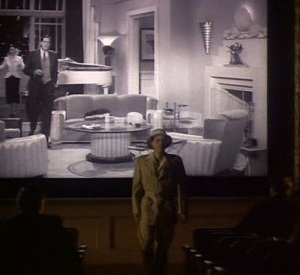Friends & Family
Ever since Elisif died, I’ve felt differently toward family and friends. Or maybe I’m just more aware.
******
I traveled to India on my own the summer before my final year of college. For two months, in my loneliness, I would fantasize, imagining everyone I knew being in my backpack, available to me. Always.
Months later, I filled a huge sheet of paper with small pencil drawings of friends and family, creating a quasi-abstract mosaic of relationships: there they all were.
That same year, Woody Allen’s Purple Rose of Cairo was released. In the film, Jeff Daniels, on a silver screen within the silver screen, catches Mia Farrow’s eye in the audience. Down he hops, from the celluloid world to the real one. I wished so badly the conceit of this movie were reality: the film (up there and between us) magically permeable.
******
That drawing: a friend and classmate bought it just before we graduated. This past month, he and I exchanged emails. It had been nearly 30 years since we last saw one another or communicated.
Time passes.
(I borrow that phrase not from the cliché, but from Joan Didion’s use of it in Blue Nights. She too lost a child.)
******
When Elisif died, I finally learned love is the only thing. Or more accurately, as Serafina put it, love is not the thing, but the sign of the thing: the thing is our connection to one another. Which is immortal.
******
Another cliché: distance makes the heart grow fonder.
When Elisif was alive, it was at times unbearably hard to spend time with her. She lied. She stole. She denied. Her anxieties and erratic, suspect behavior was at best unsettling. It would be easier when she was away.
Loving Elisif is so easy now. And I miss her so much.
******
Are you picking up on the paradox here?
The physical world is imperfect as a place for loving people, for feeling connected with friends and family. My better angels are too subject to distraction: I am left prone to small thoughts and big fears.
(Among so many friends and family as I am now, I sometimes just want to pull the covers over my head and go back to sleep.)
But the physical world also is a haven: fellowship exists, connection happens, and love is here and now.
Do you see the paradox?
******
Before Elisif died, I saw this paradox not as paradox, but as contradiction. It troubled me, always, but now no longer.
It’s not that I’ve learned something, but rather I’ve acquired something. If I had to put a name to that thing, it would be: faith.
People do jump down from the silver screen into our lives. All my friends and family are in a backpack I carry around with me day and night. The mosaic of relationships I drew so many years ago is real, then and now and forever. Just not all in the physical world.
I go back to Hamlet again:
“There are more things in heaven and earth, Horatio, than are dreamt of in your philosophy.”
And Walt Whitman:
“If you want me again look for me under your boot soles.”
This is the wonder of art: it addresses this article of faith; it speaks to the plenitude of truth.
******
These summer days, among so many family and friends, I can feel grateful (sometimes). But I know: whether they are present or not, and even whether I want them in the room or not, I can trust in our love, and all the planes in which connection happens.
I am as with Elisif as I am with anyone, always and forever.



